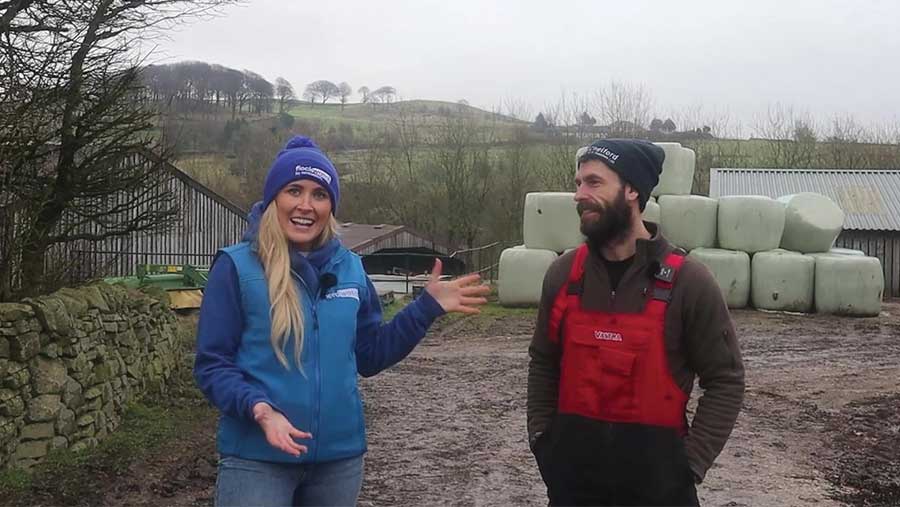Advertiser content
Farm management app helps Emmerdale star digitise operations
 Kelvin Fletcher and Katie © Herdwatch
Kelvin Fletcher and Katie © Herdwatch In our brand new AgVentures by Herdwatch series we visit farms across the UK, Ireland and beyond, showcasing different farming methods, tales and much more.
In the latest episode, we journey to the serene landscapes of the Peak District to speak to a very special guest: Emmerdale star Kelvin Fletcher.
Renowned for his 20-year portrayal of farmer Andy Sugden, Kelvin’s transition from television screens to the reality of real-life agriculture is nothing short of captivating.
For the Fletchers, the saga began in 2020, a year marked by unprecedented challenges and uncertainty.
Originally destined for sunny California, their plans were abruptly derailed by the onset of the Covid-19 pandemic.
Faced with this unforeseen obstacle, they found themselves at a crossroads, with Kelvin’s instinctive wisdom guiding their path, the couple were attracted by a rural lifestyle and moved out to a beautiful 120-acre farm in the heart of the Peak District.

Katie and Kelvin Fletcher © Herdwatch
Beginning this journey with no background in farming was a leap of faith, but Kelvin embraced the challenge wholeheartedly and took the plunge into unfamiliar terrain.
Fast forward nearly four years, and Kelvin stands as a testament to the power of perseverance and passion.
Learning every day on the job, Kelvin has gained considerable expertise and continues to deepen his understanding of farm practices daily.
Today, the Fletchers boast a widely diverse farm, from a flock of over 50 breeding ewes, to a selection of goats, pigs, chickens, and even alpacas.
Kelvin has many aspirations for the future of his farm, including introducing cattle to the already impressive repertoire, and is ready to embrace the challenges that lie ahead.
Yet, amidst his busy farm life, Kelvin faced a problem familiar to many modern farmers: the increased responsibilities of a growing farm along with the relentless demand of farm paperwork.
In attempts to find a balance between growing his farm, raising his family, and continuing his career in acting, Kelvin found himself looking for a solution.
Luckily for Kelvin there was one solution that stood out in the market; Herdwatch – the UK’s number one farm management solution.
The idea that this farming app could save farmers three hours a week on paperwork immediately intrigued Kelvin.

© Herdwatch
Nearly two years into his journey with Herdwatch, Kelvin has found himself free from the shackles of administrative tasks.
From tracking medicine purchases to recording breeding data, and treating sheep, Herdwatch seamlessly integrated into Kelvin’s daily routine, enabling him to simplify and organise his farming practices and allow him to focus on the things that really matter.
Gone are the days of keeping important information on scraps of paper. Needing nothing more than his smartphone, Kelvin can now effortlessly access vital details when he is out on the farm, at his fingertips.
A true testament to the impact of technology when integrated with the ever-changing landscape of agriculture.
“In the past I’ve had little notes here and there, dotted around, and when I need to know that information, it’s not really ideal, so the app’s great because there and then you can find out pretty much everything about your whole flock”.
Join us as we delve into Kelvin’s captivating farming journey, guided by the expert insights of Herdwatch’s own Katie, where we explore Kelvin’s passion for agriculture, his aspirations for the farm’s future, and the invaluable role that Herdwatch has played in his journey.
Provided by
Herdwatch is the No. 1 Farm Management software in the UK, helping our members simplifying record-keeping and compliance tasks. Our user-friendly app streamlines farm operations and optimises efficient decision making on farms nationwide.
